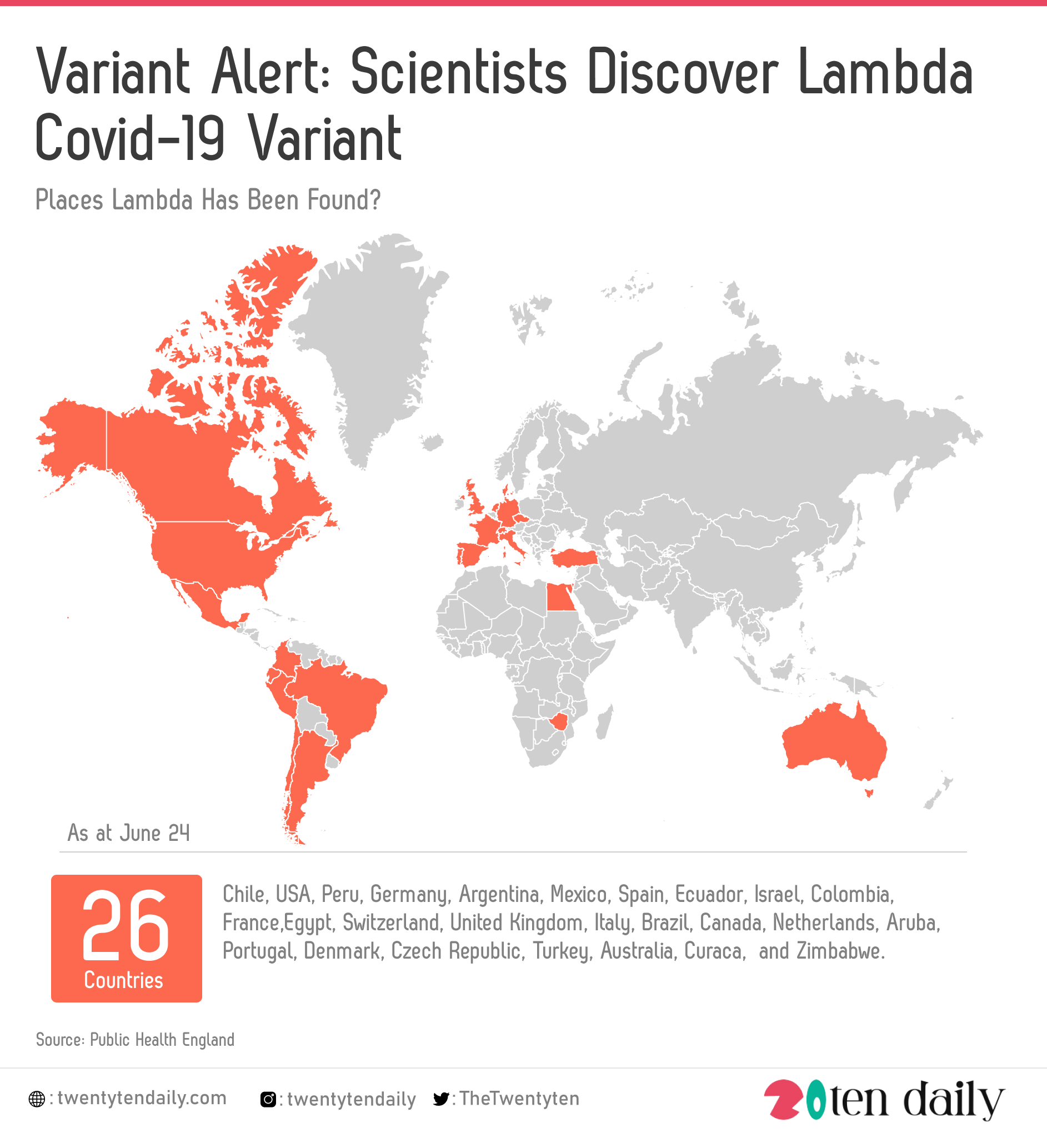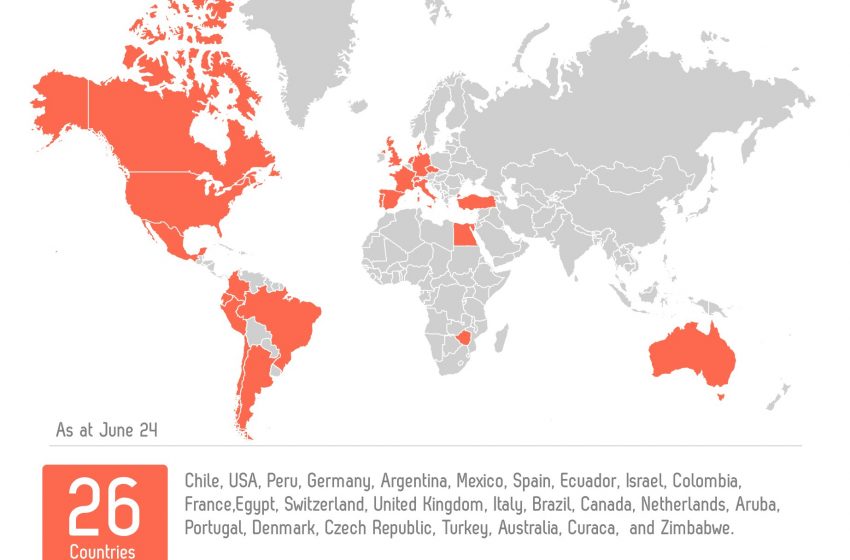21 months into the Covid-19 pandemic and the world is used to news of new variants of the virus, particularly those that have, one by one, supplanted previous versions of the disease.
In recent months, mutations like the delta variant have usurped other mutations like the alpha variant in terms of transmissibility and the potential to cause hospitalizations in both vaccinated and unvaccinated people. The delta variant is responsible for the skyrocketing infection rates globally in what is termed the third wave of the virus.
Now scientists have discovered a new variant they believe may be deadlier than the delta variant. Here are a few things to know about the lambda variant.
What Is The Lambda Variant?
The lambda variant or “C.37” has been spreading rapidly in South America, particularly in Peru where the earliest samples of the virus were documented as early as August 2020.
However, it was only flagged up as a “variant of interest” by the World Health Organization on June 14 of this year, as cases attributed to the variant had spread noticeably.
In a report by the WHO in mid-June, the lambda was associated with substantive rates of community transmission in multiple countries, with rising prevalence over time concurrent with increased Covid-19 incidence. The health organization promised investigations were already underway to find out more about the variant.
Places Lambda Has Been Found?
The WHO’s June 15 report showed that the lambda variant had been detected in 20 countries, in five WHO regions, although it has a stronger presence in South America.
“Authorities in Peru reported that 81% of Covid-19 cases sequenced since April 2021 were associated with Lambda. Argentina reported increasing prevalence of Lambda since the third week of February 2021, and between 2 April and 19 May 2021, the variant accounted for 37% of the Covid-19 cases sequenced,” the WHO noted.
By June 24, the lambda variant had been detected in cases in 26 countries, including one African country. They include Chile, Argentina, Peru, Ecuador, Brazil and Colombia, America, Canada, Germany, Spain, Israel, France, the U.K. and Zimbabwe, among others.

Is It More Dangerous?
The WHO and other public health bodies are still trying to understand how the variant compares with other variants of the virus, in regards to its transmissibility rate and resistance to vaccine rate.
In mid-June, the WHO said, “lambda carries several mutations with suspected phenotypic implications, such as a potential increased transmissibility or possible increased resistance to neutralizing antibodies.”
Describing the specific mutations in the spike protein (some of which have been described as unusual by experts), the WHO said: “There is currently limited evidence on the full extent of the impact associated with these genomic changes”, and further studies are needed “to better understand the impact on countermeasures [against Covid-19] and to control the spread.”
Do Vaccines Work?
Again, more studies are needed to uncover the effect that the lambda variant has on vaccine efficacy, particularly on vaccines widely available in the West, like Pfizer BioNTech, Moderna or Oxford-AstraZeneca.

